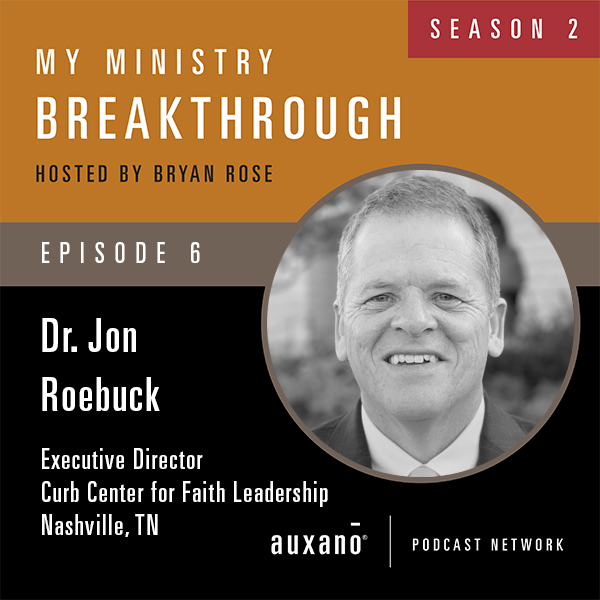2_06: Dr. Jon Roebuck – Actually talk with people… don’t just preach at them.
Breakthrough ideas with Jon:
- How can a church stay relevant to their culture?
- How can a church stay relational to the communities in which God has placed them?
- How can a church remain resolute to their DNA and their calling?
- If you will create physical space, you allow conversations to begin to happen, that are meaningful and perspective-altering,
- We create better communities if we have better churches, and we create better churches if we have better leaders.
- Ask yourself: what does the world around me need, and how can I begin to instill into my people this heart for ministry?
- Community ministry is messy, it’s inconvenient, it’s expensive, it’s all of that, but it’s the right thing to do.
- Baptists tend to hang out with Baptists, Methodists with Methodists, Presbyterians with Presbyterians, and so we don’t necessarily have an appreciation for what good work other denominations are doing. How might that change?
- In most urban areas like ours in Nashville, nobody is connecting the dots across the denominational lines.
- We’re beginning to see that the work in Nashville is more significant than what our church and our denomination can tackle.
- At the local church level, what does it look like for us to be a good neighbor or contributing partner to our community?
- What if we stopped telling our community what their needs are, but asked them to tell us what their needs are?
- Just by the fact that we’ve opened physical space, we begin to enter into conversational space.
- If you have enough conversations, you begin to develop relational space, where you start to engage at a different level.
- There’s a movement from physical space to conversational, to relational, to redemptive space, and ultimately to reflective space.
- If you create space, even physical space, in your building for the right conversations, amazing things are going to happen.
- Be willing to invite people into your space. It’s not going to damage your church. It’s not going to damage your theology.
- What we don’t have in our culture is, we don’t have the safe, rational, civil dialog space.
- So, where do people go to have safe conversations about important things? It ought to be the church.
- Why is the church not a place that important conversations can take place?
- Forty million Americans in the last 25 years have left the church because they get judgment, and they get condemnation instead of conversation.
- We’re too busy preaching at people to listen to what they have to say in return.
- I believe a lot of our pastors don’t have a vision beyond the seat they’re sitting in right now, beyond the next Sunday.
- How do you carve out space, even in your ministry, to develop relationships outside of your comfort zone?
- I’m not going to learn to truly reach others if I surround myself with only people who look like me, who think like me, and who believe like me.
- The number one problem with the 21st-century, American Christianity, is that lack of evangelistic zeal.
- If we don’t understand the lies, we can’t speak the truth.
- In the body of Christ, we tend to lead with the truth we know versus understanding the lies they know and then bringing God’s truth to that.
- You will never get to that high plateau of doing God’s will unless you’re doing God’s will for your life today.
- So look for God’s will along the way, not just in the here and the hereafter somewhere.
Breakthrough resources in this episode:
Charlie Curb Center for Faith Leadership
Tattoos on the Heart by Gregory Boyle
Dr. Jon R. Roebuck serves as the Executive Director of Belmont University’s Rev. Charlie Curb Center for Faith Leadership. The Center seeks to provide on-going educational opportunities for faith-based leaders across middle Tennessee in order to equip those leaders to be relevant to culture, relational to the community, and resolute in missional focus. The Institute sponsors a number of on-campus seminars, workshops, and courses each semester.
He is the author of three devotional books, Christmas, Then and Now, Morning Conversations, and newly released, Creating Space. Additionally, he has written for a number of preaching periodicals and journals. Dr. Roebuck has also served on several boards and agencies for the Alabama and Tennessee Baptist conventions.
Jon and Linda Roebuck married in 1984 and have three grown children with their own families. Jon and Linda have always enjoyed different sports together but continue the debate of Auburn vs. University of Alabama football.

Podcast: Play in new window | Download
Subscribe: Apple Podcasts | RSS | More